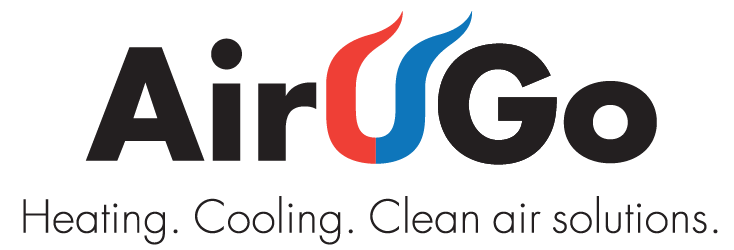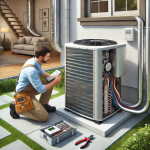Air Conditioner Tips
An air conditioner is essential for maintaining a comfortable indoor environment, especially during the hot summer months. However, to keep your air conditioning unit running efficiently and effectively, it requires proper care, maintenance, and smart usage practices. Below, we provide comprehensive air conditioner tips that will not only extend the lifespan of your system but also enhance its performance, reduce energy consumption, and improve your indoor air quality.
Understanding the Basics of Air Conditioning
Air conditioners work by removing heat and humidity from the indoor air, cooling it, and then circulating the conditioned air back into your living space. This process is dependent on several critical components such as the compressor, evaporator, condenser, and refrigerant.
How Air Conditioners Work
The compressor circulates refrigerant between the indoor and outdoor units of your AC system. The refrigerant absorbs heat from your indoor air and releases it outside, leaving cooler air to be circulated back into your home. The evaporator coils inside the air handler absorb heat, while the condenser coils outside the house release heat into the atmosphere.
Choosing the Right Air Conditioner for Your Home
Before diving into maintenance tips, it’s essential to ensure that your air conditioning unit is the right size and type for your home. Incorrectly sized units can cause inefficiency, higher energy bills, and inconsistent cooling.
Central Air Conditioning vs. Window Units
- Central Air Conditioning: Ideal for large homes with ductwork. A central AC system cools the entire house uniformly and is often more energy-efficient for larger areas.
- Window Units: These are suitable for smaller spaces or single rooms. They are easy to install and tend to be more affordable upfront.
Factors to Consider When Choosing an AC Unit
- Cooling Capacity (BTUs): Ensure that the air conditioner’s British Thermal Units (BTUs) are appropriate for the size of the area it will cool. Larger rooms require higher BTUs.
- Energy Efficiency Ratio (EER): Always choose a unit with a higher EER to ensure energy efficiency.
- Cost of Installation and Operation: Consider not only the initial installation cost but also the long-term energy and maintenance costs.
Regular Maintenance for Optimum Performance
Routine maintenance is crucial for keeping your air conditioner in top condition and extending its lifespan. Neglecting regular care can lead to reduced cooling capacity, increased energy consumption, and costly repairs.
Change Air Filters Regularly
One of the simplest yet most important air conditioner tips is to change your air filters regularly. Dirty or clogged filters block airflow, making the system work harder to cool your home, which increases energy use and strains the unit.
- How Often to Change Filters: Change or clean filters every 30 to 90 days, depending on the usage and filter type.
- Benefits: Clean filters improve airflow, reduce energy costs, and maintain better indoor air quality by trapping dust, dirt, and allergens.
Clean the Coils
Both the evaporator and condenser coils accumulate dirt over time. Dirty coils reduce the system’s ability to absorb and release heat efficiently, leading to inefficient cooling and higher energy bills.
- How to Clean Coils: Turn off the power to your AC unit and use a soft brush or vacuum to gently remove dust and debris from the coils. You can also use a coil cleaner for deep cleaning.
- Frequency: Coils should be cleaned at least once a year, ideally before the cooling season starts.
Inspect and Clean the Fins
Fins on the condenser and evaporator are delicate and can easily bend, blocking airflow through the unit. You can use a fin comb to straighten any bent fins.
- Tip: Regularly clean the fins using a garden hose to remove dirt and debris, ensuring the fins aren’t damaged in the process.
Check the Thermostat Settings
Ensure that your thermostat is set correctly for energy savings and comfort. Smart or programmable thermostats can automatically adjust the temperature based on your schedule, reducing energy consumption when you’re away or asleep.
- Tip: Setting your thermostat to a slightly higher temperature when you’re not home can save significant amounts of energy. Experts recommend keeping it around 78°F (25°C) when you’re home and setting it higher when you’re away.
Maximizing Energy Efficiency
Energy-efficient cooling is essential for reducing electricity bills and lowering your carbon footprint. There are several ways you can optimize your AC’s energy efficiency without sacrificing comfort.
Seal and Insulate Ductwork
For homes with central air conditioning, leaky or poorly insulated ductwork can result in up to 30% energy loss. Ensure your ducts are sealed and properly insulated to prevent cool air from escaping and warm air from entering.
- Tip: Inspect and seal ducts using mastic sealant or aluminum foil tape to improve efficiency.
Use Ceiling Fans
Ceiling fans can help distribute cooled air more evenly throughout your space, allowing you to set your thermostat at a higher temperature without compromising comfort.
- Tip: Use ceiling fans in conjunction with your air conditioner and turn them off when leaving the room to save energy.
Reduce Heat Sources
During the hottest times of the day, avoid using appliances that generate heat, such as ovens, dishwashers, and clothes dryers, as they force your AC to work harder. Use these appliances in the early morning or late evening when temperatures are cooler.
- Tip: Keep blinds or curtains closed to block out the sun’s heat during peak hours.
Signs Your Air Conditioner Needs Professional Attention
While regular maintenance can solve most minor AC issues, there are certain signs that indicate it’s time to call a professional HVAC technician.
Inconsistent Cooling
If some rooms in your home are cooler than others, or if the air from your AC vents feels weak, this could be a sign of a problem with your ductwork, thermostat, or compressor.
High Energy Bills
A sudden spike in your energy bills, without any changes in usage, often indicates that your air conditioning system is operating inefficiently, possibly due to dirty coils, clogged filters, or refrigerant leaks.
Unusual Noises
Strange sounds such as grinding, rattling, or hissing can signal mechanical issues or airflow obstructions that need immediate attention to avoid costly damage.
Short Cycling
If your air conditioner frequently turns on and off in short bursts, it could be due to an oversized unit, a malfunctioning thermostat, or electrical issues. This process, known as short cycling, puts unnecessary strain on your AC system and increases wear and tear.
When to Replace Your Air Conditioner
Even with diligent maintenance, air conditioners have a finite lifespan. Most units last between 10 and 15 years. If your AC is reaching the end of its life and you’re facing frequent repairs or high energy costs, it might be time for a replacement.
Benefits of a New Energy-Efficient Unit
Upgrading to a new, energy-efficient air conditioner can drastically reduce your energy costs and improve your home’s comfort. Modern AC units offer advanced features such as better temperature control, quieter operation, and improved indoor air quality.
- Energy Savings: Newer models are up to 50% more efficient than units manufactured just a decade ago.
- Rebates and Incentives: Many governments and energy companies offer rebates for upgrading to energy-efficient systems.
Conclusion
Maintaining your air conditioner and using it efficiently can significantly improve its performance, lower your energy bills, and extend its lifespan. Regular maintenance, such as changing filters, cleaning coils, and inspecting ductwork, is essential for ensuring your AC operates at its best. By following these air conditioner tips, you’ll ensure a comfortable, energy-efficient home all year round. If you notice any issues or need professional help, don’t hesitate to contact an HVAC technician to keep your system running smoothly.

